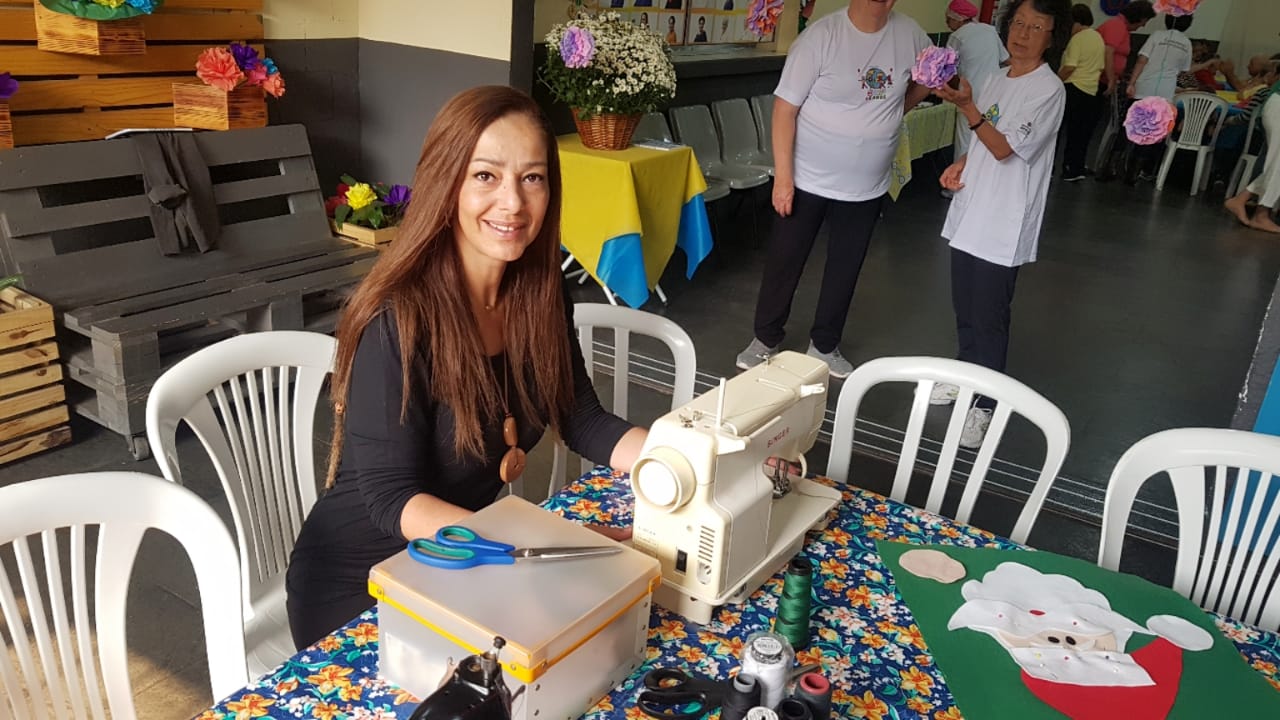By Carla Prater
A BGR project with GAIA (Group for Assistance of the Elderly, Children, and Adolescents) provides vocational training for women in São Paulo, Brazil.
Founded by two sisters who are professional social workers, BGR partner GAIA (Group for Assistance of the Elderly, Children, and Adolescents) is a nonprofit organization acting in formal and informal education and social work. The founders saw many needs in their low-income neighborhood of Campo Grande in the south end of São Paulo. Their first effort was to start a little preschool, which was so successful that they soon had two schools, partially supported by grants from the city of São Paulo, that serve families in the area, giving the children a good start on their school careers.
They soon found other ways to serve, including providing vocational training for the many women who have not had the chance to get much schooling. These women in turn require public services that are overstretched and unable to meet the demands caused by their lack of access to healthy food and dignified living conditions. The project supported by BGR is intended to offer better living conditions to 120 women, through workshops, talks and courses designed to give them skills as formal or informal workers earning money to supply their families’ basic needs.
Two types of training were offered: elder care and sewing. Each course had about 40 women participating. The women were instructed in pattern making, cutting, sewing, and finishing their work so it was ready for sale in a Christmas bazaar. The elder care group had lecture sessions covering legal and social issues, instruction in physical care techniques, and field trips to care facilities, as well as hands-on practice sessions in how to assist bed-bound patients.
The project ran into some serious issues halfway through as COVID hit São Paulo very hard. However, GAIA was able to pivot quickly to providing modules for online learning. The sewing classes switched to videos the teacher made explaining how to do projects and the videos were posted online for the students’ use. Almost everyone in Brazil has a cell phone, and the students were able to access the content online and the instructor was thrilled with how things turned out. Sewing workshop instructor Cilene says that she has learned not only how to teach in person classes but also virtual classes, which is a useful new skill for her. She says, “GAIA and BGR, thank you so much for the confidence you placed on me this year. I hope to be able to honor my commitment in 2021 and continue the in-person classes, always count on me!” You can see the video classes at the link here.
The elder care class also had to pivot to online training for their second group, which turned out working better than expected. A student named Graça said, “I’m here to talk about the free Elderly Caregivers course. I really enjoyed participating; there were two weeks of interaction and exchange of information. The teachers who participated were clear and objective, which facilitated learning. Thank you, GAIA and BGR.”
Elder care workshop participant Juliana said, “I wanted to talk quickly about the course we just took for caregivers, first of all to thank GAIA and BGR for this wonderful course, and say that it was very useful for me. All the classes, all the lectures we saw … about the laws, many things that I didn’t know, about nutrition too, there was a lot that I also had no idea, that I didn’t know! The last class, which was with the nurse was wonderful, I learned a lot, it was a very good course, very useful for us and I would like to thank GAIA and BGR for this opportunity, thank you very much!”
A video explaining the course is available here.
At the beginning of the pandemic, GAIA purchased materials and set up a voluntary seamstress task force. They made 1600 masks, which were distributed to the community and donated to other communities as well. These are very poor regions, with few resources and little governmental assistance. GAIA also purchased food and mobilized the donation of resources and food. They distributed 370 basic baskets in June, July, and August. BGR support was fundamental and essential to this emergency effort.
Carla Prater is Assistant Director of Buddhist Global Relief. Transplanted to Brazil by missionary parents at the age of 12, she remained there for the next twenty years and speaks fluent Portuguese. During her professional life she worked as a researcher at the Hazard Reduction & Recovery Center at Texas A&M.





